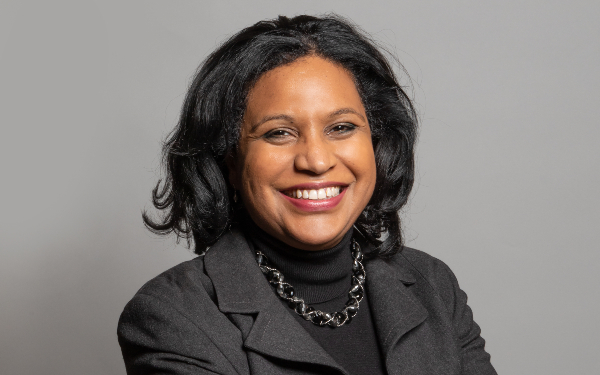
The Labour government has given its explicit backing to the family help model initiated by its Conservative predecessor to promote earlier intervention for families in need.
Children’s minister Janet Daby said the model, currently being tested in 10 areas, was “central” to its plans for reforming children’s social care, in response to a written parliamentary question from fellow Labour MP Gareth Snell.
The approach involves providing families in need with multidisciplinary support designed to resolve the issues they face without the need for more intervention, reduce stigma and remove the bureaucracy of moving cases between targeted early help and child in need, which are merged under the model.
Key proposal from care review and Stable Homes strategy
It was the central proposal from the 2021-22 Independent Review of Children’s Social Care, which called for £2bn to be invested in family help over four years, to rebalance the system away from child protection and reduce the numbers going into care.
It was then taken up by the Conservatives’ 2023 Stable Homes, Built on Love strategy, which set aside just under £40m over two years to test the model – and related initiatives – through the families first for children pathfinder, which is now operating in 10 areas.
Labour did not reference family help or promoting earlier intervention with children in either its manifesto for July’s general election or in the subsequent King’s Speech, in which it announced that a forthcoming Children’s Wellbeing Bill would strengthen multi-agency safeguarding arrangements.
Last month, Department for Education minister Jacqui Smith told the House of Lords that the government shared the care review’s objective of bringing “timely support to children and families” and that it would “build on” the families first for children pathfinder in doing so, without setting out how.
Labour gives explicit backing to family help
However, in her response to Snell, issued last week, Daby explicitly confirmed the government’s support for pathfinder programme and for family help as a cornerstone of its approach to children’s social care reform.
“We recognise that there is a strong evidence base for early intervention and whole family working to support families with multiple issues before they reach crisis point, to stay together and thrive,” said Daby.
In an echo of the Stable Homes strategy, she added: “This is at the heart of our reform agenda to rebalance the children’s social care system toward earlier intervention, which is aimed at improving families’ lives today, their outcomes in the future, and reducing costs to public services.”
“Central to this ambition is testing a new model of family help which builds on best practice from well-evidenced programmes such as Supporting Families and Pause, which feature whole-family working and lead practitioners providing dedicated support to prevent re-referrals.”
Supporting Families – previously the Troubled Families programme – involves allocating key workers to provide early and co-ordinated support for families with multiple needs to help improve outcomes and reduce costs to the state, while Pause is a support scheme for women at risk of having more than one child removed.
‘Supporting families at the earliest opportunity’
Daby said the families first for children pathfinders were “providing targeted support to help families overcome challenges at the earliest opportunity”, while also “involving [family networks] in decision-making at an earlier stage”.
The pathfinder also involves authorities establishing expert multi-agency child protection teams, with cases led by specialist social workers known as lead child protection practitioners.
The minister – a former fostering social worker – added that early findings from an independent evaluation of the pathfinder were due in spring 2025.




 Bournemouth, Christchurch and Poole
Bournemouth, Christchurch and Poole  Hampshire County Council
Hampshire County Council  Lincolnshire County Council
Lincolnshire County Council  Norfolk County Council
Norfolk County Council  Northamptonshire Children’s Trust
Northamptonshire Children’s Trust  South Gloucestershire Council
South Gloucestershire Council  Wiltshire Council
Wiltshire Council  Wokingham Borough Council
Wokingham Borough Council  Children and young people with SEND are ‘valued and prioritised’ in Wiltshire, find inspectors
Children and young people with SEND are ‘valued and prioritised’ in Wiltshire, find inspectors  How specialist refugee teams benefit young people and social workers
How specialist refugee teams benefit young people and social workers  Podcast: returning to social work after becoming a first-time parent
Podcast: returning to social work after becoming a first-time parent  Podcast: would you work for an inadequate-rated service?
Podcast: would you work for an inadequate-rated service?  Family help: one local authority’s experience of the model
Family help: one local authority’s experience of the model  Workforce Insights – showcasing a selection of the sector’s top recruiters
Workforce Insights – showcasing a selection of the sector’s top recruiters 

 Facebook
Facebook X
X LinkedIn
LinkedIn Instagram
Instagram
Comments are closed.